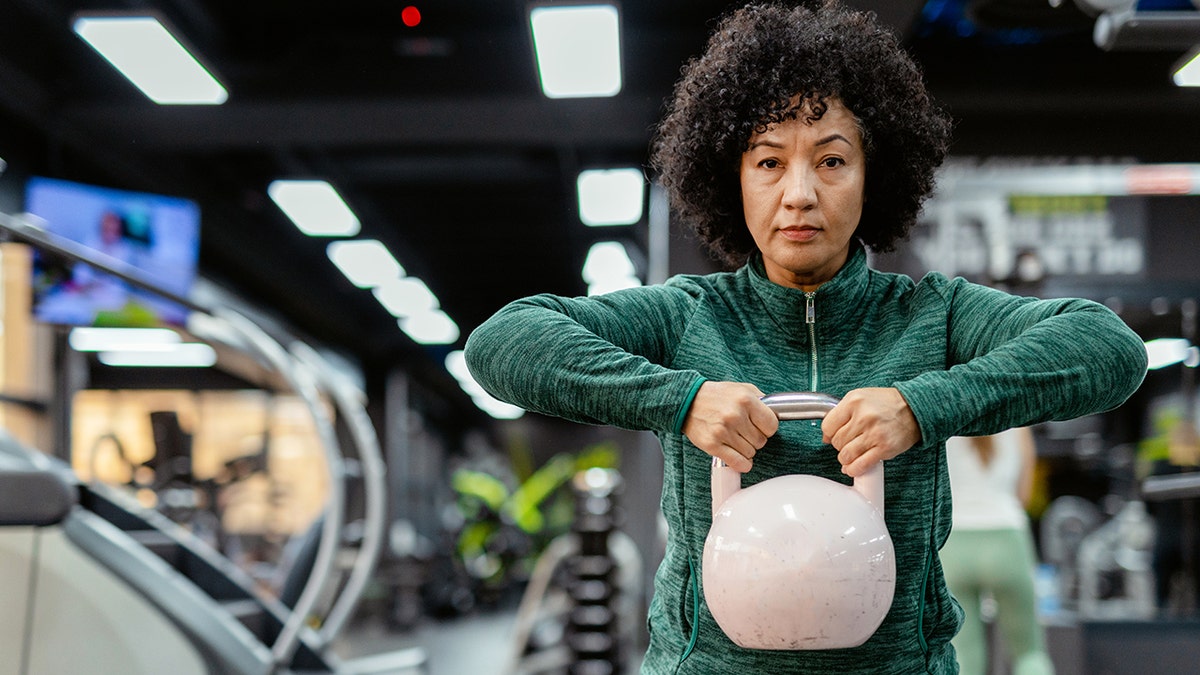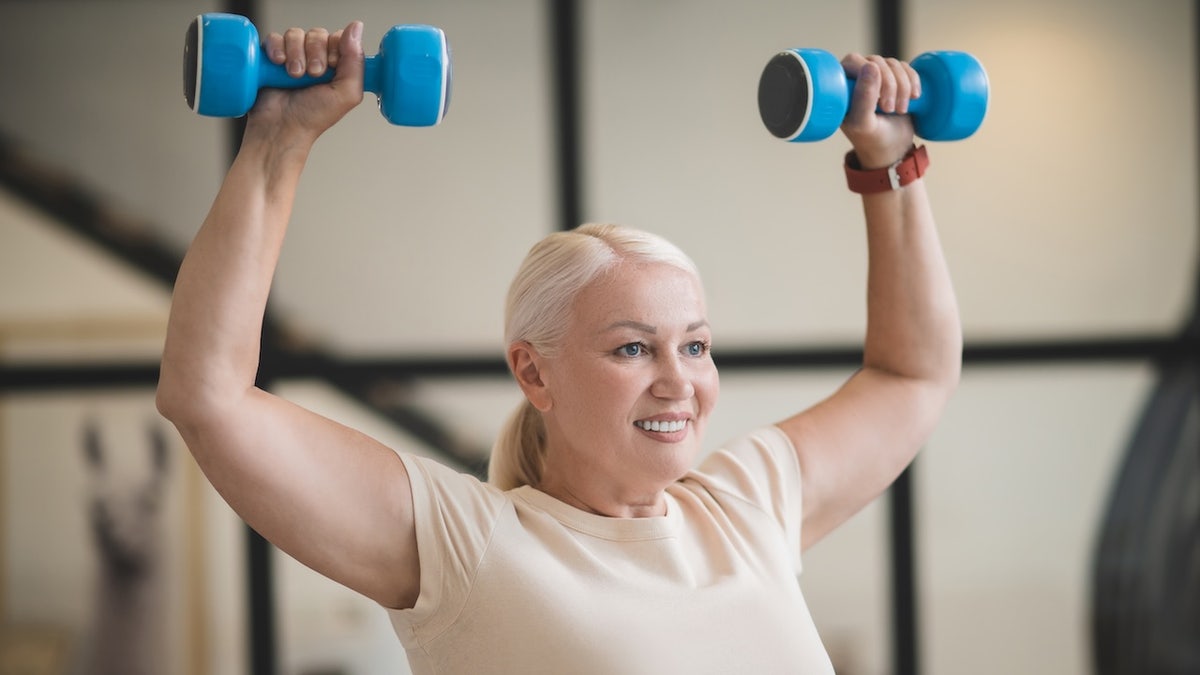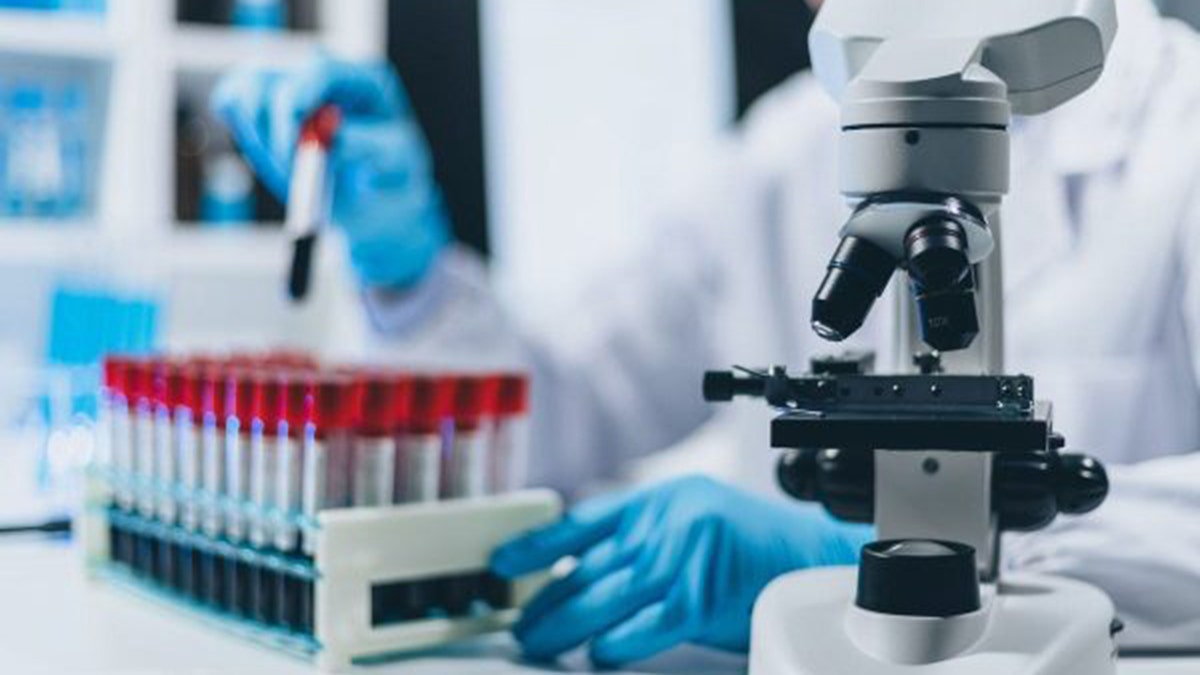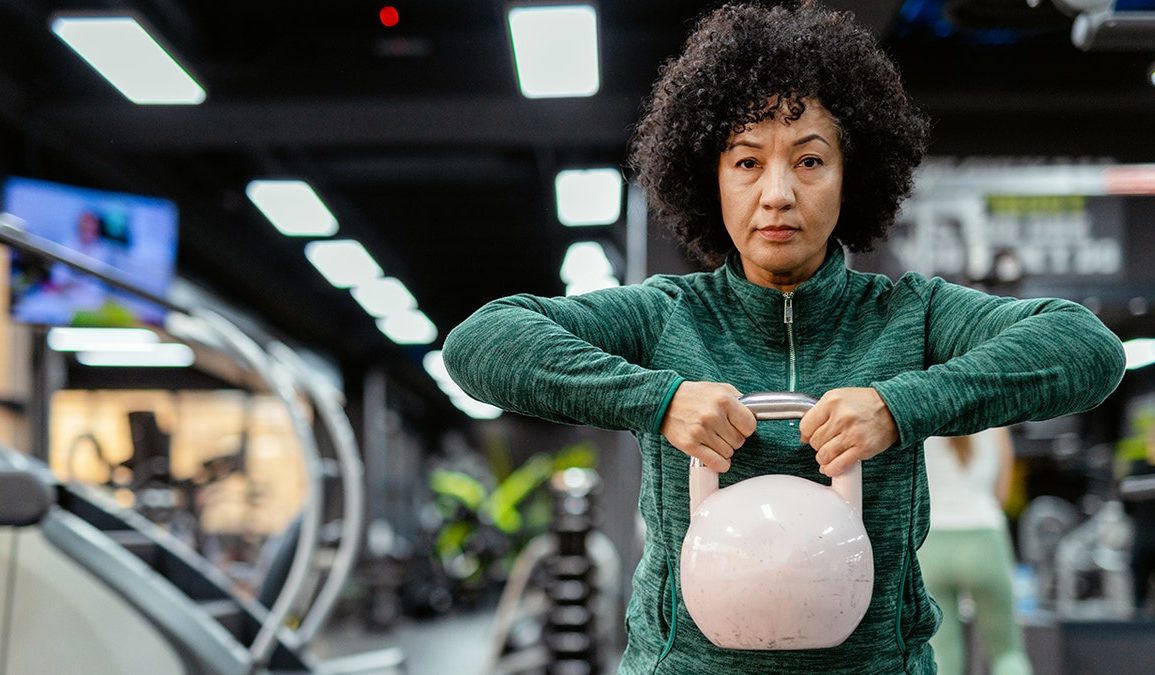NEWYou can now listen to Fox News articles!
New research has revealed that a single session of weight training can help fight breast cancer.
Researchers at Edith Cowan University in Australia investigated how resistance training and high-intensity interval training (HIIT) affect cancer cells.
One key benefit is the boosting of myokines, a protein produced by muscles that could reduce cancer growth by 20% to 30%, according to a press release.
FITNESS EXPERT REVEALS 6 PILLARS OF STRENGTH TRAINING THAT OLDER ADULTS SHOULD MASTER
The study, published in the journal Springer Nature, randomly allocated a single bout of resistance training or HIIT to 32 breast cancer survivors.
Blood samples were collected before and after exercise and were measured for cell growth.

Researchers found that resistance training and high-intensity interval training, both of which can include weight lifting, could help reduce cancer threat. (iStock)
The researchers discovered that a single bout of either exercise increased the levels of anti-cancer myokines and “significantly reduced” cancer cell growth in survivors.
“This highlights the importance of exercise as a treatment with promising anti-cancer effects,” the study concluded.
CANCER DEATHS HIT ‘ALARMING’ SURGE DUE TO COMMON HEALTH CONDITION, EXPERTS SAY
Study co-author Rob Newton, Ph.D., professor of exercise medicine at Edith Cowan University, reflected on these findings in an interview with Fox News Digital.
“For people living with or after cancer, each exercise session acts like a ‘dose’ of cancer-suppressing medicine produced by the body itself,” he said. “This reinforces the importance of exercise as part of cancer care, with intensity being a critical factor.”



The researchers discovered that a single bout of either exercise increased the levels of anti-cancer myokines and “significantly reduced” cancer cell growth in survivors. (iStock)
Newton said he found the results surprising, as the researchers suspected there would be differences between resistance training and HIIT.
“We were struck by the fact that both resistance training and interval training suppressed cancer cell growth to a similar degree — although they appeared to act through elevations in different myokines,” he told Fox News Digital.
POPULAR SWEETENER COULD MAKE CANCER TREATMENT LESS EFFECTIVE, STUDY FINDS
“This suggests there may be multiple biological ‘pathways’ through which exercise exerts its anti-cancer effects.”
There were some study limitations, according to Newton — including the fact that the researchers examined cancer cells in a lab environment and not immune cells, which are a “major mechanism through which exercise is likely to enhance cancer control.”



The lead researcher said future studies are necessary to confirm the preliminary findings. (iStock)
Based on these preliminary findings, Newton encouraged people with cancer to try to exercise most days of the week to “dose” their body with cancer-suppressing molecules.
“If muscle mass is low, targeted exercise combined with nutrition should be used to build more muscle, essentially enlarging the body’s internal ‘pharmacy’ of anti-cancer agents,” he said.
CLICK HERE TO SIGN UP FOR OUR HEALTH NEWSLETTER
Francesco Bettariga, an ECU PhD student who was involved in the study, noted in a press release that exercise has emerged as a “therapeutic intervention” for cancer management.
“A large body of evidence exists that shows the safety and effectiveness of exercise as medicine, either during or post-cancer treatment,” he said.
The role of inflammation
Exercise and diet are also key to managing “systemic inflammation,” Newton said, as chronic inflammation undermines muscle growth and creates a more “cancer-supportive environment.”
Bettariga said his own research has confirmed that changes in body composition due to consistent exercise impact inflammation, which plays a “key role” in cancer recurrence and mortality.



HIIT training balances short bursts of vigorous physical activity with periods of active rest. (iStock)
Persistent inflammation not only promotes tumor growth, according to the researchers, but also reduces immune function.
Breast cancer survivors are at a higher risk of cancer recurrence and tumor progression, as the cancer itself and the side effects of treatment can “elevate levels of inflammatory biomarkers,” they said.
CLICK HERE TO GET THE FOX NEWS APP
The new research also found that reducing fat mass and increasing lean mass through consistent exercise gives cancer survivors a higher chance of reducing inflammation.
For more Health articles, visit www.foxnews.com/health
“If we are able to improve body composition, we have a better chance of decreasing inflammation, because we are improving lean mass and reducing fat mass, which is responsible for releasing anti-inflammatory markers,” Bettariga said.
“You never want to reduce your weight without exercising, because you need to build or preserve muscle mass and produce these chemicals that you can’t do through just diet alone,” he added.








